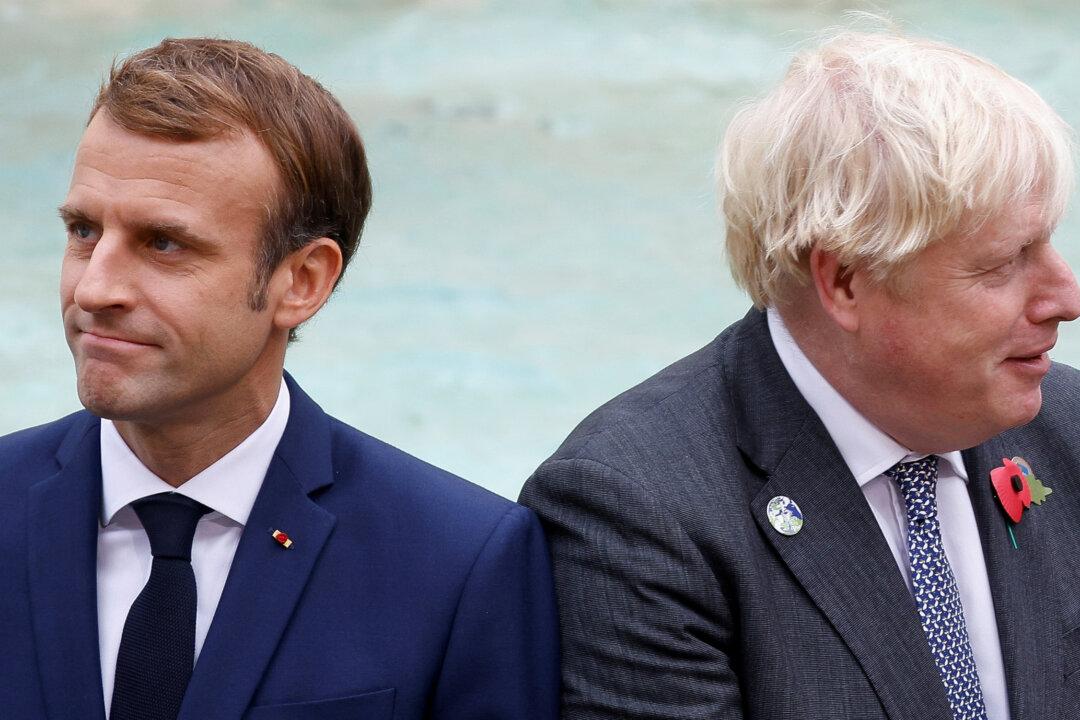ROME—Britain and France clashed again over a post-Brexit fishing dispute on Oct. 31, with London calling on Paris to withdraw its threats and rejecting assertions that there had been any agreement to try to cool an argument that could ultimately hurt trade.
The two sides painted different pictures of a meeting between Prime Minister Boris Johnson and French President Emmanuel Macron on the sidelines of a G20 meeting in Rome, and there was little sign of the dispute being resolved.





